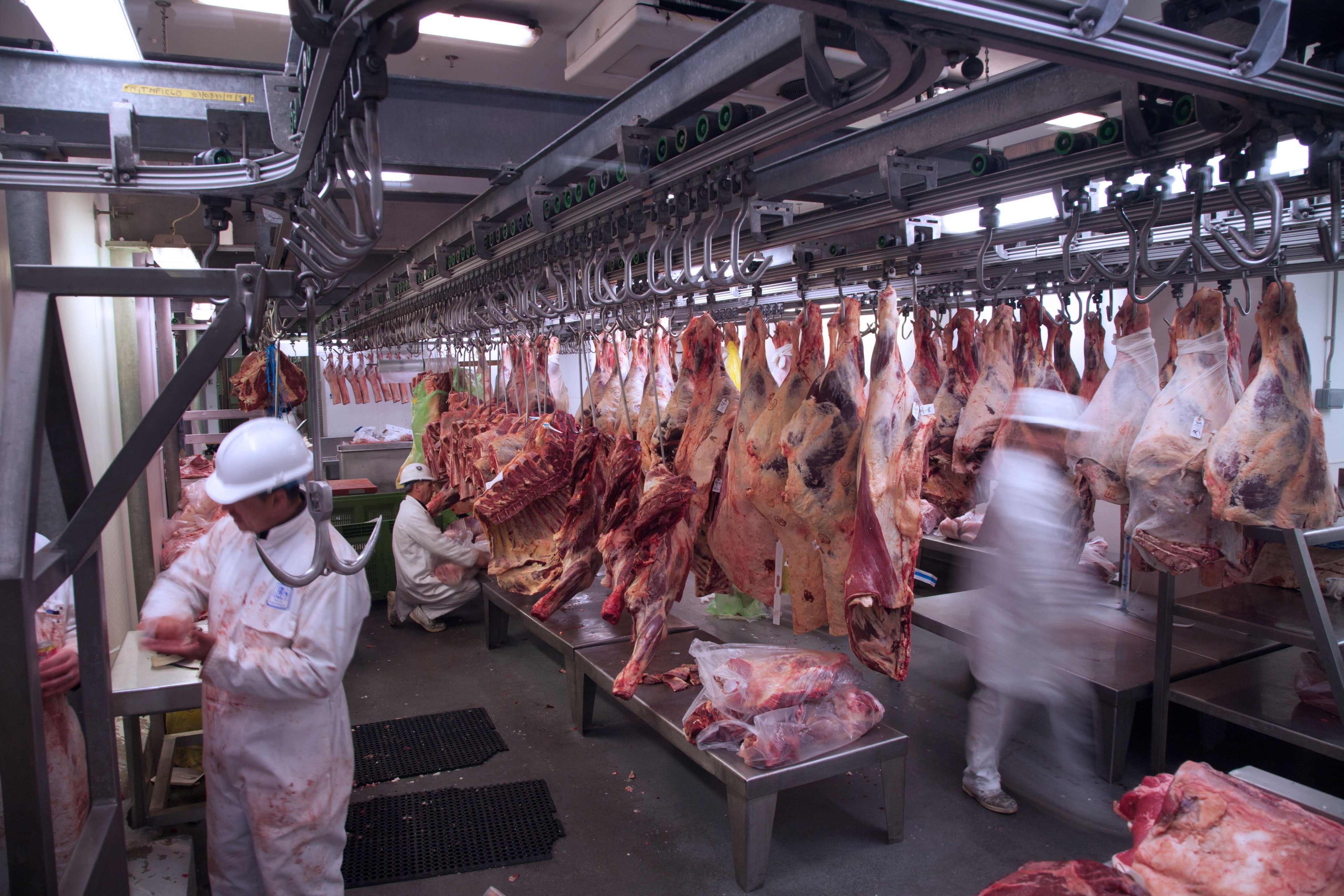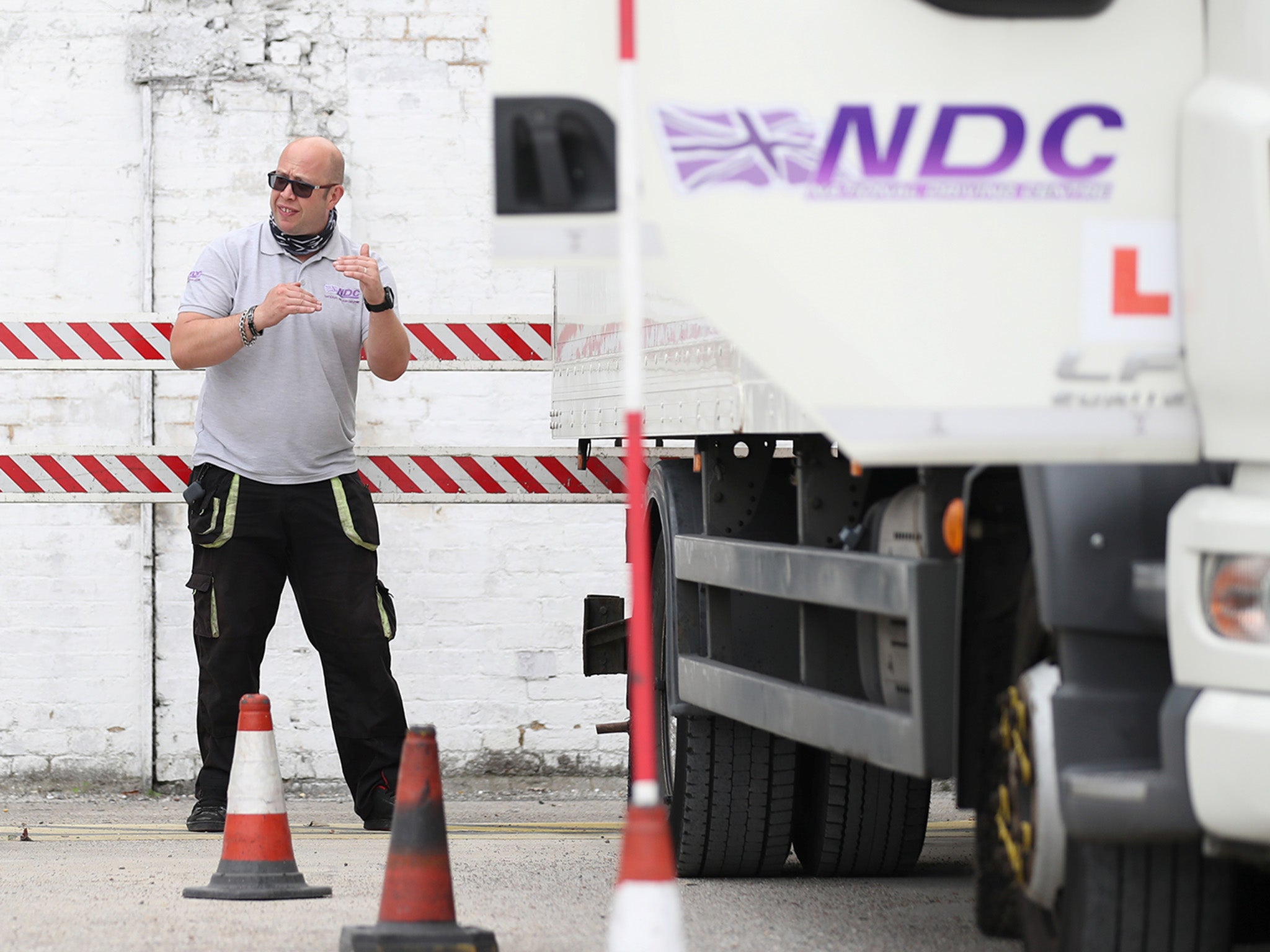Ex-offenders given second chance by employers as labour shortage deepens and shelves lay empty
Charities supporting prisoners and ex-offenders into work report an ‘exponential’ increase in inquiries from employers who are struggling to fill vacancies, reports Ben Chapman


Your support helps us to tell the story
From reproductive rights to climate change to Big Tech, The Independent is on the ground when the story is developing. Whether it's investigating the financials of Elon Musk's pro-Trump PAC or producing our latest documentary, 'The A Word', which shines a light on the American women fighting for reproductive rights, we know how important it is to parse out the facts from the messaging.
At such a critical moment in US history, we need reporters on the ground. Your donation allows us to keep sending journalists to speak to both sides of the story.
The Independent is trusted by Americans across the entire political spectrum. And unlike many other quality news outlets, we choose not to lock Americans out of our reporting and analysis with paywalls. We believe quality journalism should be available to everyone, paid for by those who can afford it.
Your support makes all the difference.When Robert left Brixton prison earlier this year, he faced a daunting prospect. It has always been difficult for ex-offenders in the UK to find good quality work. With millions of people on furlough and the country emerging from its deepest recession in a century, things could have been bleak.
But he is now hoping to do his bit to help solve a deepening labour shortage in the UK that has left McDonald’s out of milkshakes, Wetherspoons struggling to stock up on beer and Nando’s running low on chicken.
Robert is one of a growing number of ex-offenders being supported into jobs in high demand such as lorry driving. Charities supporting the rehabilitation of prisoners and ex-offenders report an “exponential” rise in inquiries this year.
They hope the trend will provide a dual benefit: alleviate a shortage of workers and help to prevent ex-offenders from returning to crime.
For years, “tough on crime” rhetoric combined with big cuts to public services have led to underinvestment in the rehabilitation of offenders. The approach has been counterproductive, leaving the UK with a large prison population and a stubbornly high rate of reoffending.
Bounce Back, a charity that focuses on helping ex-offenders into work helped to organise Robert's HGV training in co-operation with builders merchant Lawsons. “They've really supported me," he says. "It's nice to know you've got someone there to help you.”
Robert’s HGV qualification will add to a construction course he completed while serving his sentence.
Haulage companies, builders, retailers and food producers are among those who have struggled to find enough workers, after as many as 1.3 million overseas nationals are believed to have left since the start of last year.
Some companies including Tesco, Waitrose and John Lewis have increased wages or offered bonuses but in parts of the country that are already close to full employment this is simply not enough. Employers are increasingly looking to workers who they may have previously shunned.
Last month, the Association of Independent Meat Suppliers (AIMS) called for more prisoners to be released on temporary licence so that they can work in the industry. And Scotland Food & Drink (SFD) says it would like to see rules changed so that asylum seekers are allowed to work while their claims are processed.
Natasha Finlayson OBE, chief executive of Working Chance, a charity that helps women find work after coming out of prison, has seen a tenfold increase in inquiries in the last few months.
Employers from a wide range sectors have been in touch, including many of those that are reporting shortages such as restaurants, caterers, hotels, retail and theatres, as well as construction and highway maintenance companies.
"I honestly can’t overstate how different the employment landscape is at the moment because of the labour shortages caused by Brexit and the pandemic," says Ms Finlayson.
"We’ve had a lot of construction companies contacting us. We have seen a much greater openness to employing women and ex-offenders in construction.

"That is really good news for us. I appreciate labour shortages are difficult from the employers’ point of view but if it ushers in an era of greater willingness to other talent pools and ways of recruiting that’s really good news.
“It means we don’t have to go banging on their doors to say ‘please, please, please let us persuade you of the benefits of diverse hiring practices’.”
Charities like Working Chance hope that the shortage of workers will help to change perceptions among employers, many of whom believe the risk of hiring an ex-offender is being much higher than it actually is.
Just 1 per cent of women who find work through Working Chance go on to re-offend. “It’s incredibly unlikely that you will take on someone who goes on to re-offend or who poses any risk to colleagues or to the company.”
Numerous studies show that ex-offenders are often more committed and more loyal employees. “Having that chance to prove themselves and to turn their life around is so incredibly important.”
Finding good quality employment is also one of the best ways to prevent re-offending but many former prisoners find it difficult to get a job.
Having an income, a sense of purpose, a structure to life and daily routine have all been shown to help ensure that people who have committed crimes in the past avoid doing so in future.
“What’s really important is feeling that you are giving something back to society and that you are useful and valued,” says Finlayson.
"That starts to change your perception of who you are and your self-worth, because for many women with criminal records, their self-esteem is incredibly low. There is a very high rate of childhood abuse and neglect and domestic violence."
One woman that Working Chance has helped, Moshoodat, thought that her conviction for sub-letting her council flat would put an end to her career in finance. But after the charity helped her with training, interview coaching and information, she was able to return to work in the profession.
Moshoodat initially secured a short-term contract and then found a permanent job in south London which she has had for a year and a half. She also works as a self-employed life coach, focusing on empowering women, and is about to complete a diploma in personal performance coaching.
“After I went for the interview for the first job I started the next day. When I got on the train I was so emotional I cried. I was just over the moon that someone was willing to give me a second chance. I was so happy.”
“I think that whatever stumble you encounter in life you can still strive.”

Campaigners are keen to emphasise positive experiences like Moshoodat’s while also remaining realistic about the level of impact that the current change in attitudes among some employers can have on rehabilitation.
Andrea Coady, is policy manager at Nacro, a charity which supports women who have committed crime. She believes labour shortages mean it is inevitable that employers will have to be more creative when it comes to hiring. Ms Coady welcomes the growing enthusiasm to give prisoners and ex-offenders a second chance.
But, like many people with knowledge of the prison system, she believes that to really improve rehabilitation in the UK, much better education and career support is needed. Nacro advocates working to educate, train and rehabilitate offenders much earlier, soon after they enter prison.
“Lots of people coming out of prison are not ready for work.”
One big barrier is that prisoners do not have access to technology which means researching and finding work is difficult. Fears that prisoners could use computers to facilitate more crime mean that prison is a “largely paper-based environment”, says Coady.
During the pandemic, the Ministry of Justice (MOJ) has become more open to allowing prisoners limited and tightly controlled access to technology, with a pilot scheme planned in nine prisons.
Ms Coady would like to see that expanded. “When people go into prison they have all technology taken away from them and are infantilised. They lose any digital skills that they’ve got and are then released into a digital world where you can’t do anything without a smartphone.”
A number of prisons have begun offering training schemes, with barista courses now being particularly popular. Coady is supportive of these initiatives but would like to see a more targeted approach.
She adds: “Education and employment in prisons needs to be genuinely tied into the local jobs market, marrying up the skills that people have with what’s available.”
She also points out that there are sectors such as social care which have large shortages of labour but are unlikely to hire large numbers of ex-offenders.
“Is a company that is looking for workers to care for the elderly or people with disabilities really going to take people from prisons?
“There may be some that do but there are lots of problematic offence types for many of the employers who have shortages, particularly if they are dealing with vulnerable people.”
Ms Coady argues that problems with UK prisons are more deep-rooted and what is needed is a more wholesale change in attitudes towards rehabilitation.
She sums it up succinctly: “I really believe in the potential of people in prison. But if you want them to come out as better people you have to treat them better.”
Join our commenting forum
Join thought-provoking conversations, follow other Independent readers and see their replies
0Comments